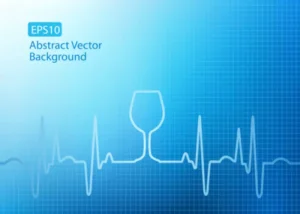Alcohol and Brain Fog: Symptoms and Treatment

Severe head injuries may even be fatal because they affect the brain’s ability to control essential functions, such as breathing and blood pressure. The two conditions, together called Wernicke-Korsakoff syndrome, happen in people alcohol brain fog who are severely deficient in thiamine (vitamin B-1). Alcohol begins affecting a person’s brain as soon as it enters the bloodstream. In a healthy person, the liver quickly filters alcohol, helping the body get rid of the drug.
Treatment Options for Alcohol Addiction and Brain Fog
High alcohol consumption can damage your brain and the rest of your body. When it comes to the bottom line as it relates to alcohol consumption and brain health, the data are rather solid on some fronts, and a bit less so on others. There’s also the potential for confounding variables, including the fact that many people like to drink alcohol to enjoy and enhance social bonds (which we know are beneficial for the brain). This is because alcohol has a dehydrating effect on the brain, which can cause cells to shrink. As the cells shrink, the brain’s ability to process information is impaired. This can lead to difficulty concentrating, memory problems, and other cognitive issues.
How long does brain fog from drinking last?
It can be helpful to write down your reasons for quitting and the difficulty of withdrawal while it is fresh in your mind. Individuals should be prepared to be uncomfortable during this period and have medical help available if needed. This is the period in which delirium tremens is most likely to occur, which requires immediate medical attention.
- As brain fog is common after COVID-19 infections, getting the COVID-19 vaccine is beneficial to reduce your risk.
- Irrational thoughts that lead to impulsive behavior are replaced by more reasonable ones.
- Alcohol increases the effects of gamma-aminobutyric acid (GABA), for example.
- Research has shown that there’s no safe level of alcohol consumption.
- The researchers linked alcohol consumption to various types of cardiovascular problems, including stroke.
Support Groups
Regarding brain fog and COVID-19, new research shows that brain fog is a result of the virus living in your gut after infection symptoms resolve. This can reduce how much serotonin (a chemical messenger) your body produces, which can impact cognitive function and lead to symptoms of brain fog. Brain fog, also called mental fog, can happen after an illness, as a side effect of a medication (like chemotherapy) or as a symptom of an underlying condition. A healthcare provider can help you determine what’s causing brain fog to help you feel more like yourself.
It’s also why we might have difficulty concentrating or recalling certain things. Most people who have dealt with alcohol addiction have some idea of what brain fog feels like because it is very similar to how you might feel after a round of heavy drinking. During brain fog, you may experience any or all of the following symptoms. People with severe addictions or a long history of alcohol misuse may suffer serious withdrawal symptoms when quitting. People should talk to a doctor about medical detox, which may prevent serious issues, such as delirium tremens. Some people find that inpatient rehab or support groups, such as Alcoholics Anonymous, are helpful.


In fact, brain fog related to alcohol use can also be a symptom of withdrawal for those who have developed alcohol dependence. In such cases, the brain has become accustomed to the presence of alcohol and may struggle to function normally without it, leading to feelings of confusion or disorientation. There are different ways to manage brain fog, depending on its cause. One effective alcohol addiction treatment is through cognitive behavioral therapy (CBT).

Given alcohol’s short- and long-term effects on the brain, it’s perhaps unsurprising to learn that we can get that lethargic, dull mental state we refer to as brain fog after drinking. In fact, one study found that hangovers have a negative effect on cognitive functions, including visual, memory, and intellectual processes. Another study noted that people are generally less alert when they’re hungover.
Understanding Brain Fog from Alcohol Withdrawal
- Brain fog is a common symptom of alcohol withdrawal that can occur after quitting alcohol.
- In this process, your doctor will assess and develop a tailored detox plan.
- The wide range depends on factors such as age, genetics, the quantity and frequency of alcohol consumption, and the duration of drinking.
- If you are thinking about quitting drinking, talk to your healthcare provider.
- Perhaps the most significant psychological effect, however, is addiction.
However, when a person drinks to excess, the liver cannot filter the alcohol fast enough, and this triggers immediate changes in the brain. Drinking in moderation is defined as one or fewer drinks per day for females and two or fewer drinks per day for males. Heavy drinking for females is eight or more drinks per week and 15 or more drinks per week for males. Behavioral health treatment for alcohol problems is often (but not always) covered by insurance.
Understanding this connection is crucial because brain fog has led some people back to drinking. As safe alcohol consumption varies from person to person, and different sources recommend various intakes, it is important to take an individualized approach. People should talk to a healthcare professional about their drinking history and personal risk factors to get tailored advice on safe alcohol consumption. Excessive alcohol consumption can have long-lasting effects on neurotransmitters in the brain, decreasing their effectiveness or even mimicking them.

